Nazi Germany's unconditional surrender came into force at 11:01 p.m. on May 8, 1945, marked as "Victory in Europe Day" by France, Britain and the United States. In Moscow it was already May 9, which became the Soviet Union's "Victory Day" in what Russians call the Great Patriotic War of 1941-45.
The way the Soviet Union and then Russia mark victory over Nazi Germany has changed over the years: the first was ordered by Soviet leader Josef Stalin in June 1945 but May 9 was a normal working day between 1947 and 1965, when Soviet leader Leonid Brezhnev ordered a 20th anniversary parade.
Russia's first elected president, Boris Yeltsin, made Victory Day parades an annual event from 1995 onwards. Under Putin, they became a muscular display not only of marching battalions but also of Russia's latest weaponry, including warplanes, tanks, and nuclear-capable intercontinental ballistic missiles.
- This anniversary falls less than a week after Russia accused Ukraine of attacking the Kremlin citadel with two drones in an attempt to kill Putin. Kyiv has denied any involvement.
However Putin also paid tribute to the armies of the United States, Britain and others which had fought the Nazis, and also to China's fight against the Japanese.
Along with the 1812 defeat of French Emperor Napoleon Bonaparte, the crushing of Nazi Germany is Russia's most revered military triumph, though both catastrophic invasions from the west left Russia deeply sensitive about its Western borders.
"We want to see a peaceful, free and stable future," Putin said, adding that memorials to Soviet soldiers were being destroyed in a number of countries.
"We have repulsed international terrorism, we will protect the inhabitants of Donbas (in eastern Ukraine), we will ensure our security," said Putin, who was joined in Red Square by leaders of several ex-Soviet republics.
He did not address the challenges facing Russia as its forces prepare for an expected major counter-offensive by Ukraine, or outline any path to victory.
Putin touts 'sacred' battle with West in Ukraine as Russia marks pared back Victory Day
Putin has repeatedly likened the war in Ukraine - which he casts as a defensive move against a West which wants to carve up Russia - to the challenge Moscow faced when Adolf Hitler invaded the Soviet Union in 1941.
"The decisive battles for the fate of our Motherland have always become patriotic, all-national and sacred," the 70-year-old president told veterans and soldiers assembled on Red Square for the annual Victory Day parade.
"A real war has again been unleashed against our homeland," he said.
Putin hailed Russian forces in Ukraine as heroes who were fighting for the country's future against a West which, he said, had forgotten the decisive role played by the Soviet Union in defeating Nazi Germany.
"The whole country rallied to support our heroes. Everyone is ready to help, praying for you," he said of those taking part in what the Kremlin calls a "special military operation".
Putin cheered for "Russia, for our valiant Armed Forces, for victory!"
Cheers rang out across Red Square, with a gun salute and the Russian national anthem, though with a much curtailed show of military hardware - and no aviation. A single tank took part - a T-34, a type used in World War Two.
The Soviet Union lost 27 million people in World War Two, including many millions in Ukraine, but eventually pushed Nazi forces back to Berlin, where Hitler committed suicide and the red Soviet Victory Banner was raised over the Reichstag in 1945.
Kyiv and its allies accuse Putin of waging an unprovoked war of aggression in Ukraine to seize land. They deny Putin's claim that the expansion of the NATO alliance to Russia's borders poses a threat to its security or justifies Moscow's invasion. . ."
Putin warns of global clash as Russia marks victory in World War Two
Reuters
Updated: 09 May ,2024: 12:10 PM GST

Russia President Vladimir Putin on Thursday accused the West of risking a global conflict and said no one would be allowed to threaten the world’s biggest nuclear power as Russia marked the Soviet Union’s victory over Nazi Germany in World War Two.
- “We know what the exorbitance of such ambitions leads to. Russia will do everything to prevent a global clash,” Putin said on Red Square after Defense Minister Sergei Shoigu reviewed troops lined up in a blizzard.
- Putin, who sent his army into Ukraine in 2022, casts the war as part of a struggle with the West, which he says humiliated Russia after the Berlin Wall fell in 1989 by encroaching on what he considers Moscow’s sphere of influence.
The Soviet Union lost 27 million people in World War Two, including many millions in Ukraine, but eventually pushed Nazi forces back to Berlin, where Hitler committed suicide and the red Soviet Victory Banner was raised over the Reichstag in 1945.
Nazi Germany’s unconditional surrender came into force at 11:01 p.m. on May 8, 1945, marked as “Victory in Europe Day” by France, Britain and the United States. In Moscow it was already May 9, which became the Soviet Union’s “Victory Day” in what Russians call the Great Patriotic War of 1941-45.
Putin, launching fifth term, promises Russians victory
US, most EU nations to boycott Putin’s inauguration amid Ukraine war
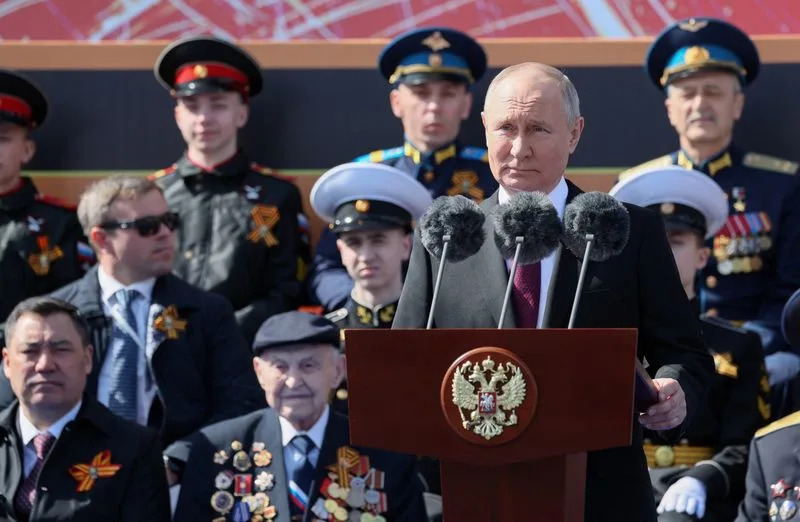
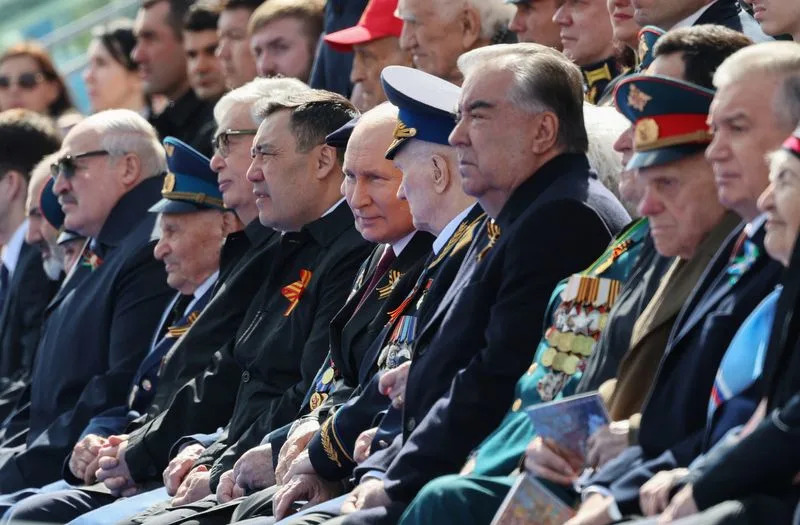



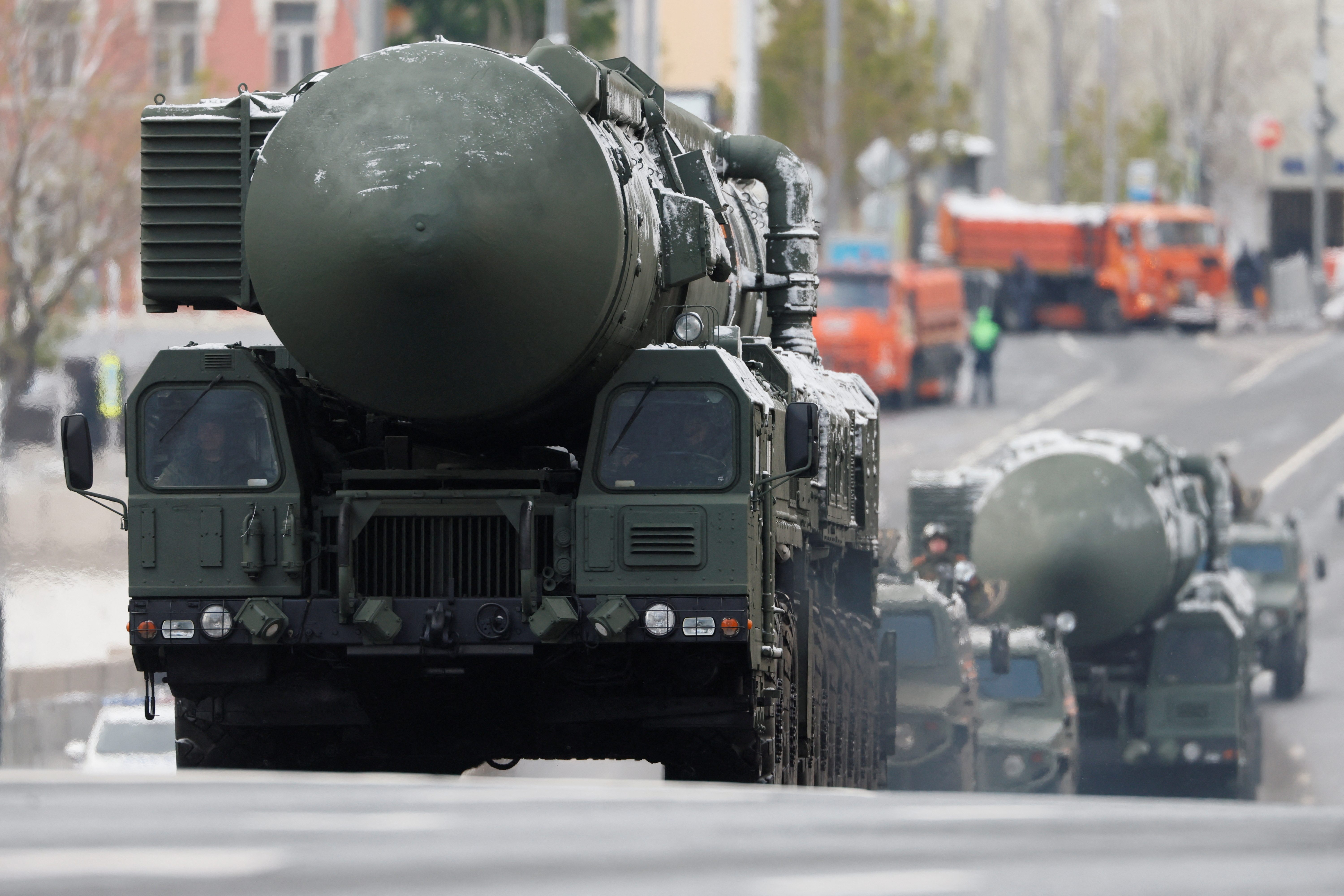
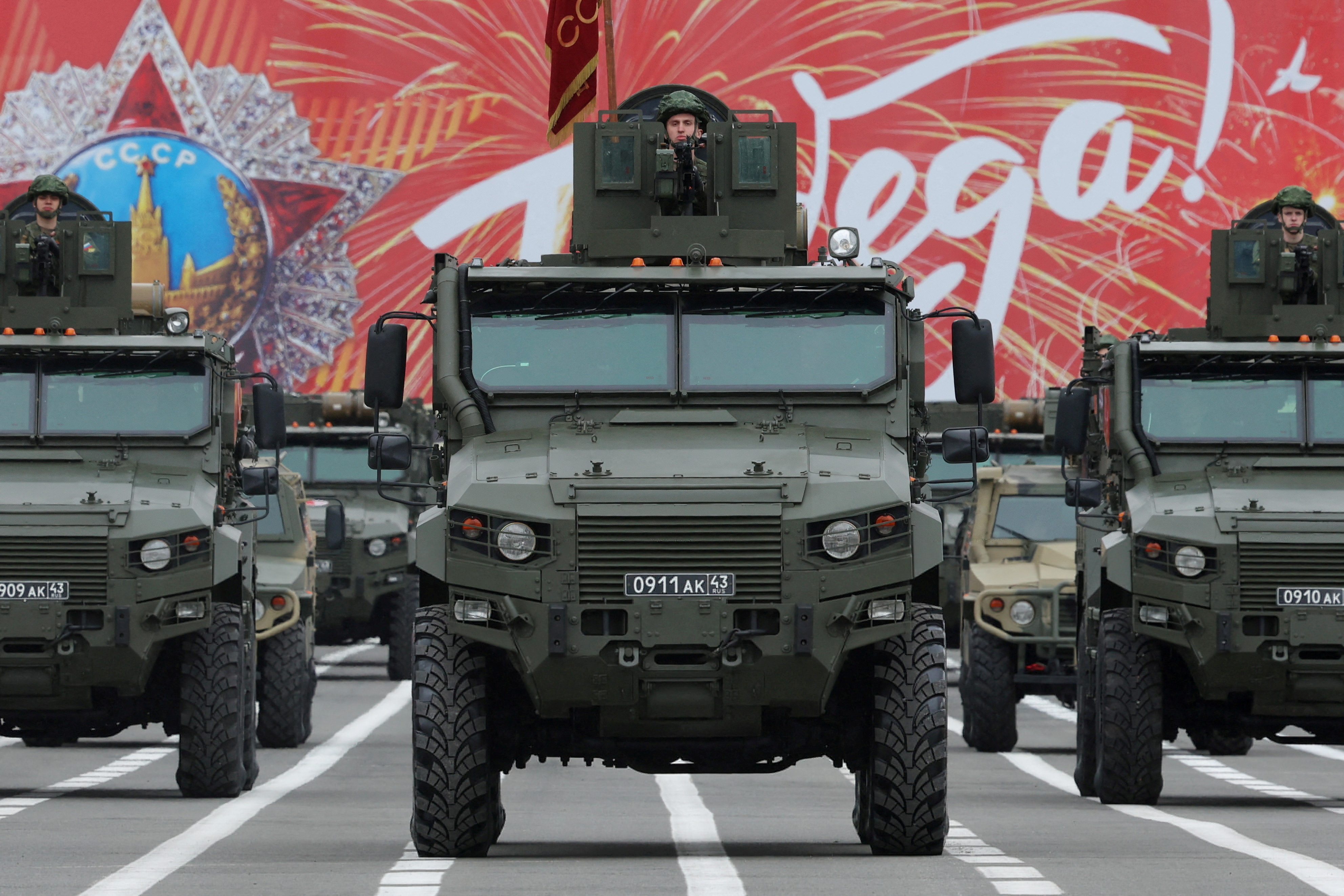
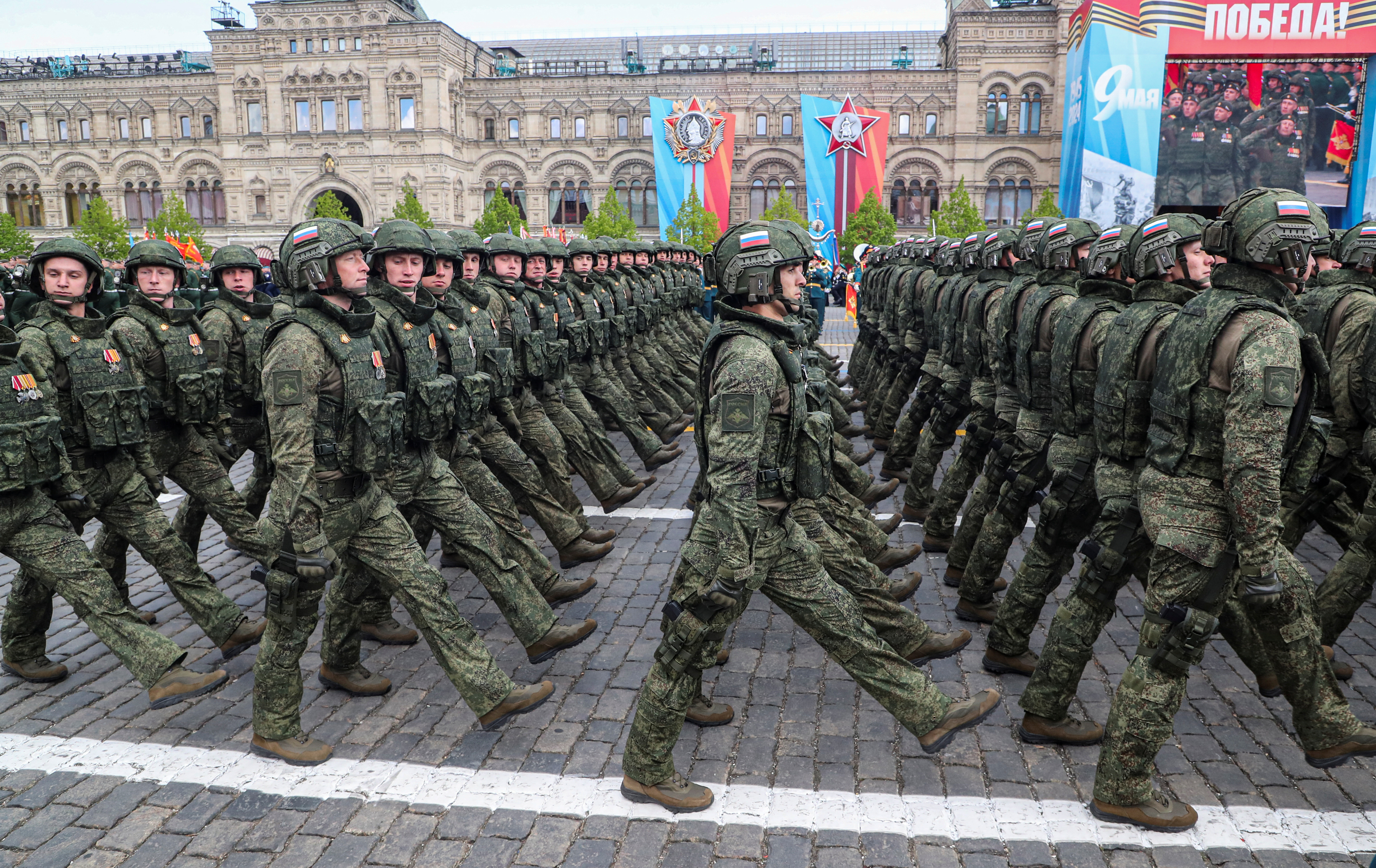


No comments:
Post a Comment